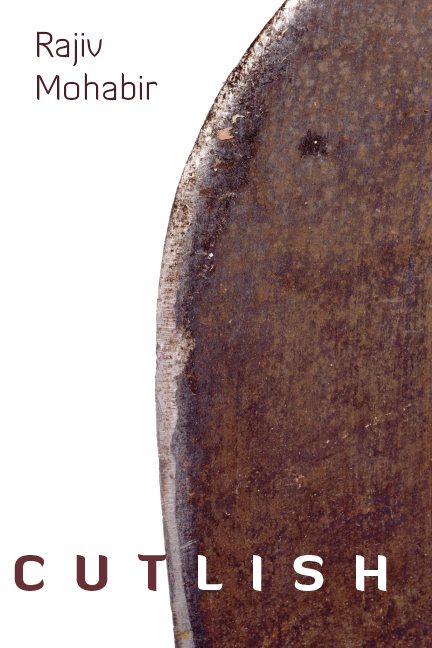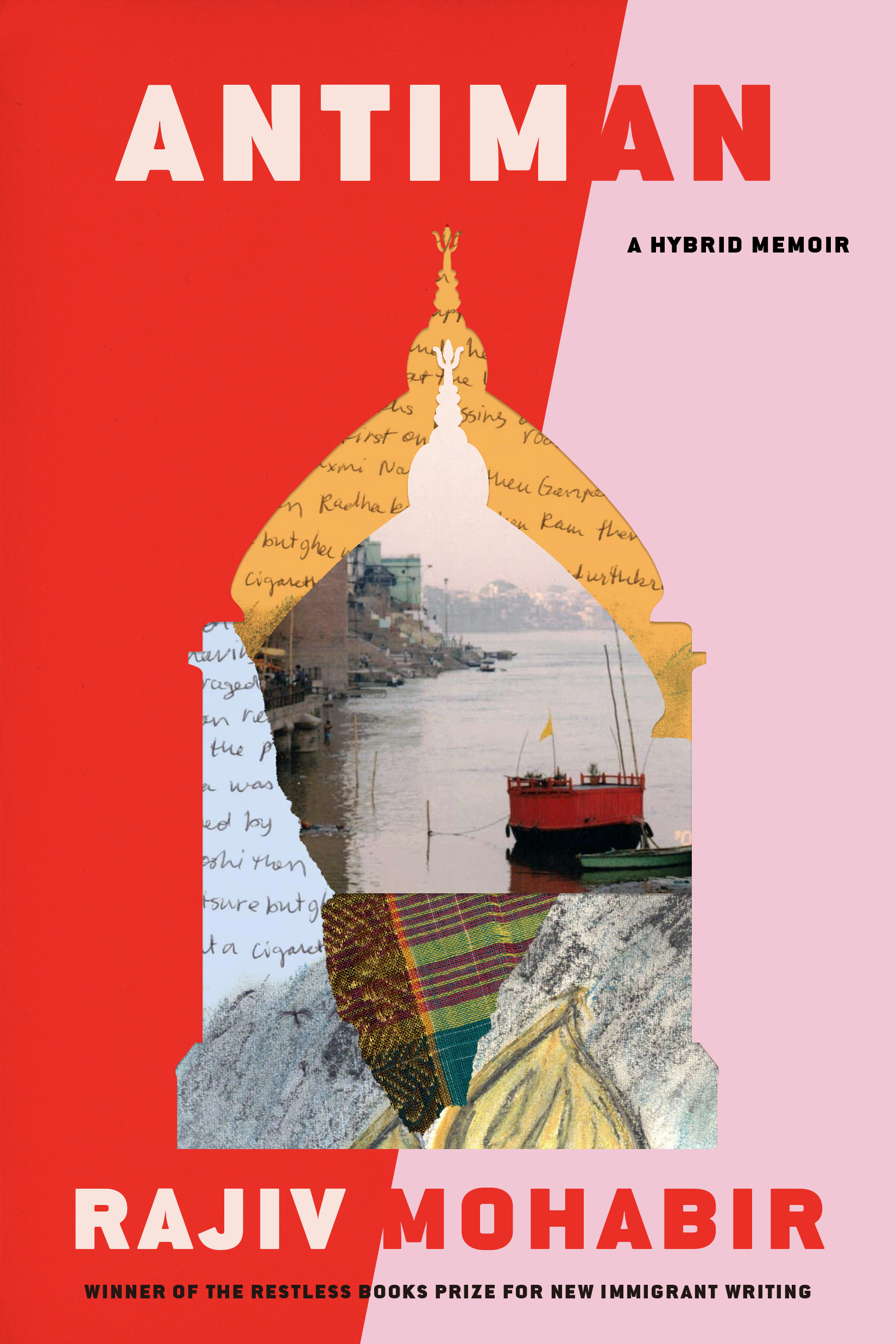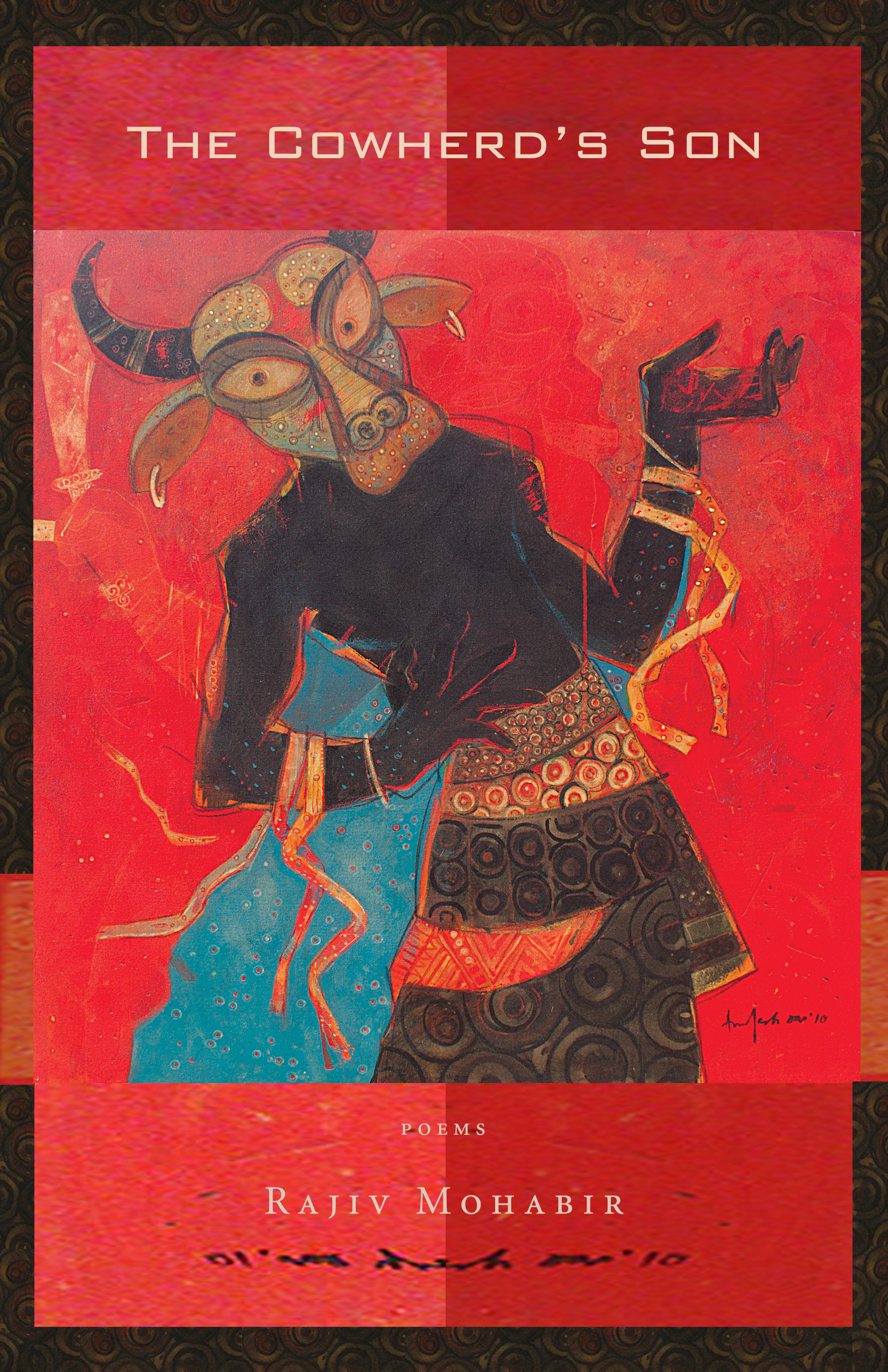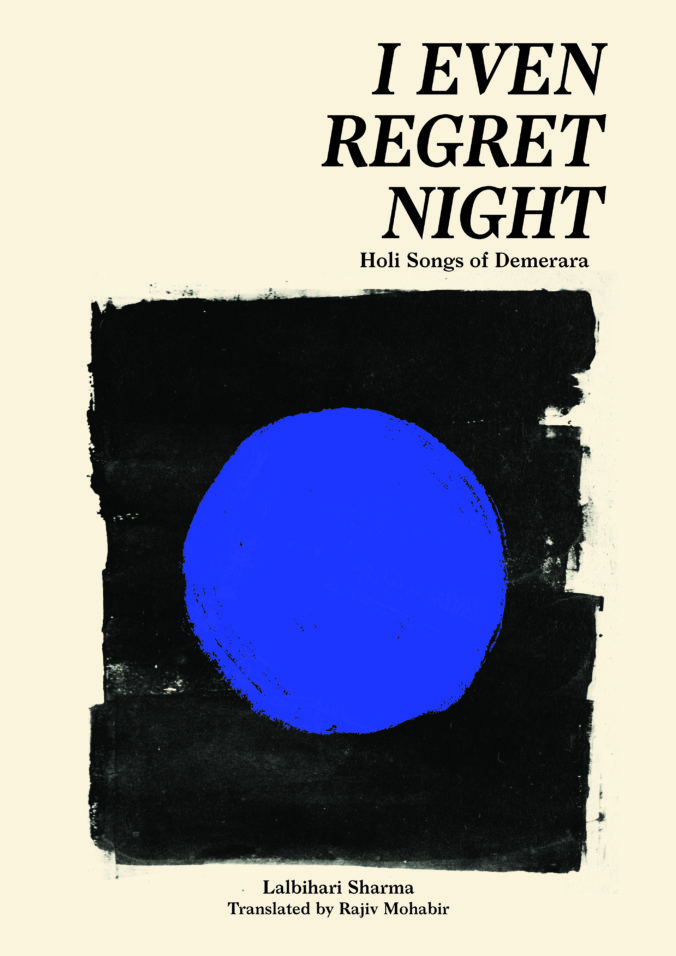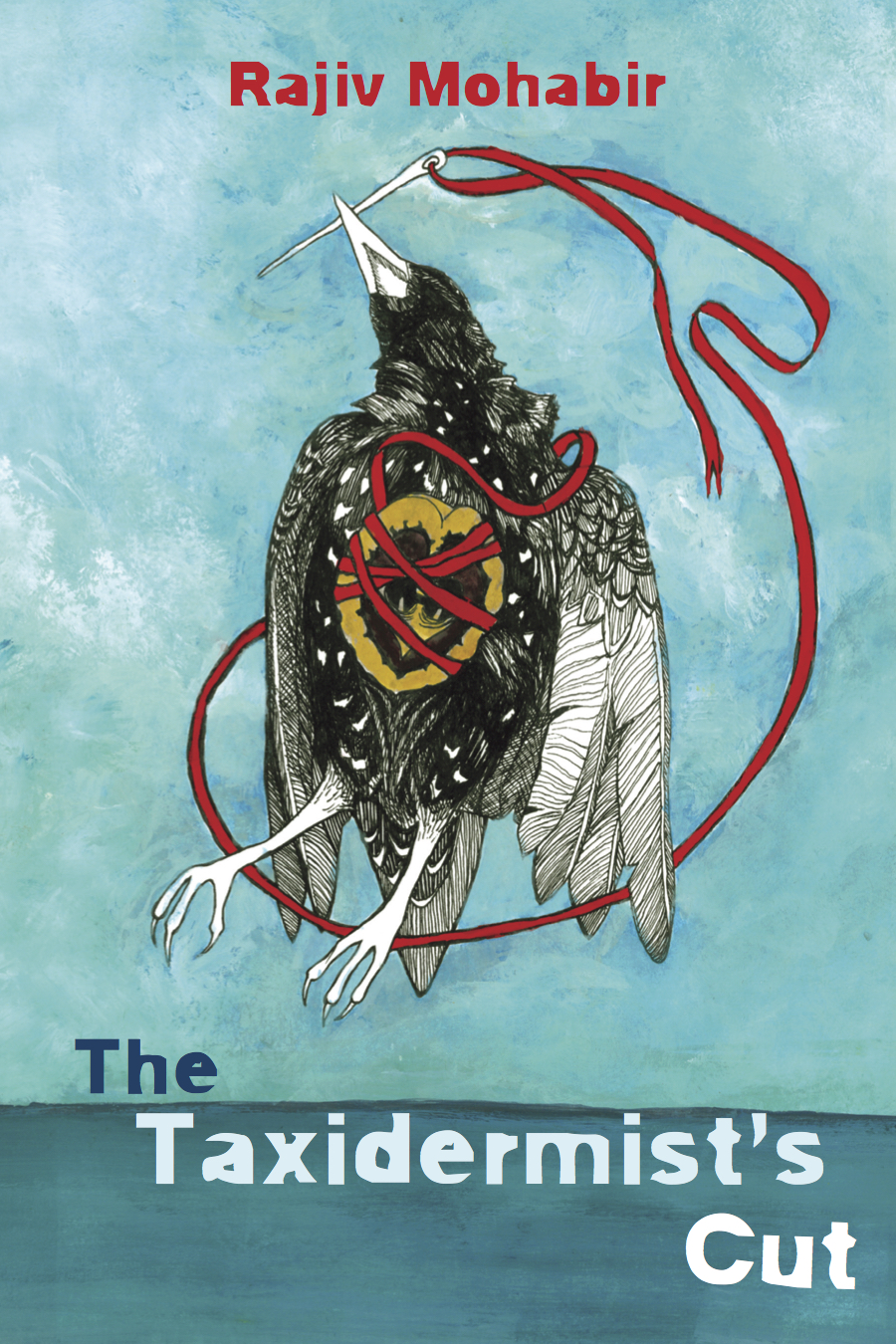

Rajiv Mohabir
Indo-Carribbean Author
Award-winning Poet
Essayist & Translator
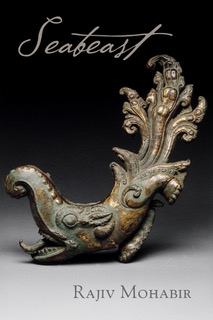
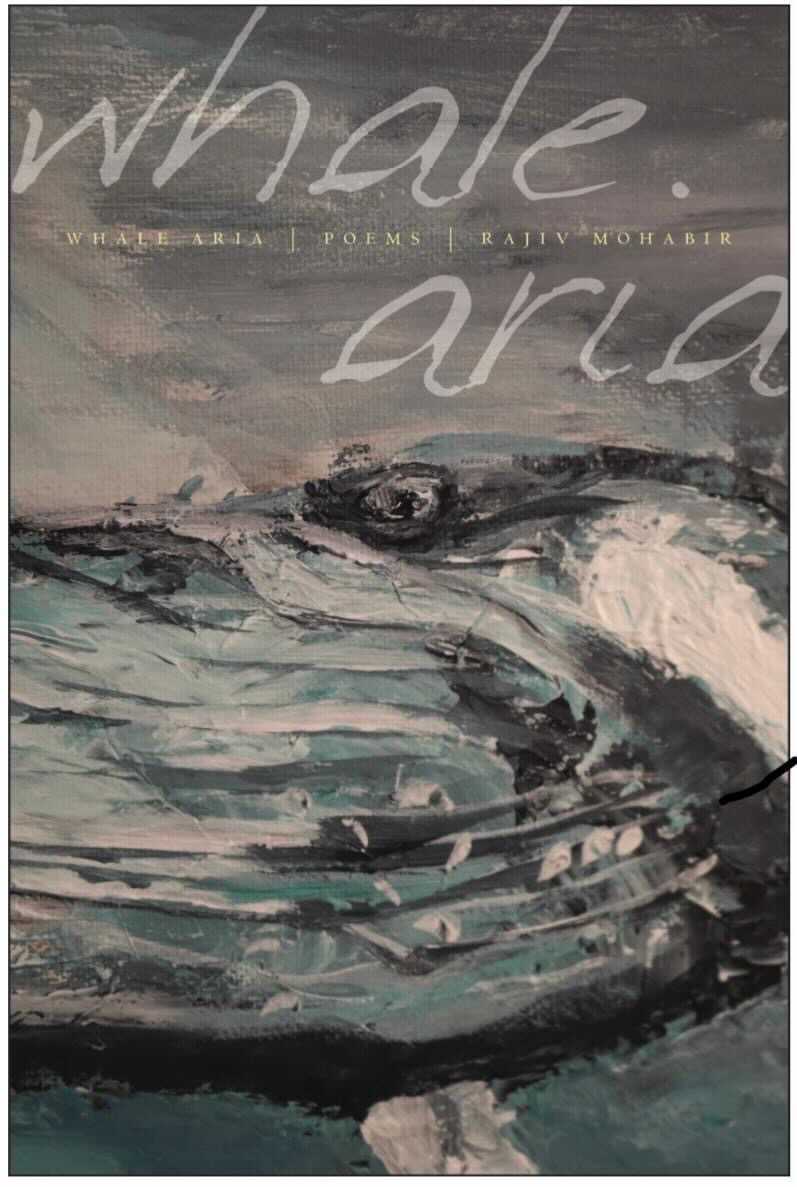
Readings &
Lecture Topics
- The Taxidermy Workshop
- Writing the Bizarre
- Writing the Mystical
- An Evening with Rajiv Mohabir
Biography
“Languid fire or tumultuous storm, mythic cow herder or drunken Queens teenager — Rajiv Mohabir will not let up and won’t let you go. Be fierce, dear reader, and join him in celebrating the queer, colored diaspora that begins in the gut and continues in the heart. Mohabir is one of the most urgent poets to break into the scene. Hands down.” —Kimiko Hahn
“Rajiv Mohabir’s poetry is electric with fierce love—animal, erotic, obliterating—the hard and soft always bruising and buffing each other. The ways we hurt each other are similar to the ways we hurt ourselves: precisely, with a steadiness learned in the murk and danger of childhood. The cornfields of adolescence and the observation of animals teach us how to not only love each other and tear each other apart but also how to meticulously put what we love, what we destroy, back together again.” –Brenda Shaughnessy
Rajiv Mohabir is an Indo-Caribbean American author of five acclaimed poetry collections: The Taxidermist’s Cut (Four Way Books, 2014); Cowherd’s Son (Tupelo Press, 2017); Cutlish (Four Way Books, 2021), which was a finalist for the 2021 National Book Critics Circle Award for Poetry and longlisted for the PEN/Voelcker Award in Poetry; Whale Aria (Four Way Books, 2023); and the forthcoming Seabeast (Four Way Books, 2025). He is also the author of the hybrid memoir Antiman (Restless Books, 2021), finalist for the 2022 PEN Open Book Award and a 2022 Lambda Literary Awards in Gay Memoir/Biography.
Of Whale Aria, Aimee Nezhukumatathil writes, “Whale songs are classified into dynamic clicks, whistles, and pulsed calls — and just like these majestic giants, this book also carries desire and loneliness, twinned across these pages in bright and sagacious paths. You will revel at how Mohabir develops wholly new poetic forms from this iridescent ocean language. This book is simply a revelation.”
Capable in Hindi, Bhojpuri and a dying language known as “Guyanese Hindi,” Rajiv was awarded a 2015 PEN/Heim Translation Fund Grant for his translation of Lalbihari Sharma’s Holi Songs of Demerara, published originally in 1916. Mr. Sharma was an indentured laborer, as well as a singer and a musician, on the sugarcane fields in Guyana. He was the first Indo-Caribbean writer to write and publish in his native dialect, a mix of Bhojpuri and Awadhi. His collection, I Even Regret Night (2019), is a translation of this text. In 2020 it received the Harold Morton Landon Award from the Academy of American Poets.
Mohabir’s poem “Ancestor” was chosen by Philip Metres for the 2015 AWP Intro Journal Award. His poems also received the 2015 Editor’s Choice Award from Bamboo Ridge Journal and the 2014 Academy of American Poet’s Prize for the University of Hawai‘i. His poem “Dove” appears in Best American Poetry 2015. Other poems and translations appear in journals such as Quarterly West, Guernica, The Collagist, The Journal, Prairie Schooner, Crab Orchard Review, Drunken Boat, small axe, The Asian American Literary Review, Great River Review, and PANK. He has received several Pushcart Prize and Best of the Net nominations. He has received fellowships from Voices of Our Nationʻs Artist foundation, Kundiman, The Home School (where he was the Kundiman Fellow), and the American Institute of Indian Studies language program.
Rajiv holds a BA from the University of Florida in religious studies, an MSEd in Teaching English to Speakers of Other Languages from Long Island University, Brooklyn, an MFA in poetry and literary translation from Queens College, CUNY where he was Editor in Chief of Ozone Park Literary Journal, and a PhD in English from the University of Hawai`i. Rajiv is currently a professor at the University of Colorado-Boulder.
Short Bio
Rajiv Mohabir is an Indo-Caribbean American author of five acclaimed poetry collections, The Taxidermist’s Cut, Cowherd’s Son, Cutlish, Whale Aria, and the forthcoming Seabeast; a book of translation, I Even Regret Night; and his hybrid memoir, Antiman. He is winner of the 2015 Kundiman Prize, a 2015 PEN/Heim Translation Fund Grant, finalists for the 2017 and 2022 Lambda Literary Awards, finalist for the 2022 PEN Open Book Award, the 2021 National Book Critics Circle Award for Poetry, and longlisted for the PEN/Voelcker Award in Poetry. Mohabir has received fellowships from Voices of Our Nationʻs Artist foundation, Kundiman, The Home School, and the American Institute of Indian Studies language program. He received his MFA in Poetry and Translation from Queens College, CUNY and his PhD in English from the University of Hawai`i. Rajiv is currently a professor at the University of Colorado-Boulder.
Visit Author WebsiteVideos
Publications
Seabeast
Poetry, 2025
“Seabeast, Rajiv Mohabir’s remarkable fifth collection, is a marvel of synthesis: a study in cetacean evolution becomes–through astonishing and unforgettable turns toward the human–a deeply intimate personal portrait. These nimble, strangely affecting poems weave together, seamlessly, extinct, mythological, and living sea creatures, cruising in public restrooms, an estranged brother, and a dissolved marriage, as if to remind us that everything is inside everything, everyone a part of everyone, especially when, in bigotry, rage, or shame, we presume or desire otherwise. Seabeast is a profound, healing, and deeply humane book to read and read again.” –Charif Shanahan
Whale Aria
Poetry, 2023
“For seasons I was faceless // trying to swallow constellations, / to roll a star-map on my tongue,” recounts Rajiv Mohabir’s speaker in “Boy with Baleen for Teeth.” As formally visionary and acoustically attuned as ever, Mohabir has composed an interspecies opera in Whale Aria. This collection examines the humpback whale as a zoomorphic analog of the queer, brown, migratory speaker breaching these pages; just as a person navigates postcolonial queerness across geopolitical boundaries, traveling from India to Guyana to London to New York to Honolulu, these singular cetaceans wander through disparate waters. Undersea, whales call to one another through their marine music, and, using the documented structure of humpback vocalizations, Mohabir translates the syntax of their songs into poetry. In our search for meaning, in our call and response, kinship resonates; “the echo is amniotic.” “Once you immerse yourself in unending strains / the tones will haunt you: // ghosts spouting sohars you’ve called / since childhood.” Fluid and inexorable as the ocean, Whale Aria articulates the confluence of ecological fate and human history. In “Why Whales Are Back in New York City,” Mohabir notes the coincidence of current events: humpback migration returns to Queens for the first time in a century while the state expedites deportations of undocumented people in the same burrough. The language shared by human and marine creatures in these poems, however, promise that the tides will turn. “Our songs will pierce the dark / fathoms,” Mohabir underscores the eternity of water. “Behold the miracle: // what was once lost / now leaps before you.”
Cutlish
Poetry, 2021
In Cutlish, a title referencing the rural recasting of the cutlass or machete, Rajiv Mohabir creates a form migrated from Caribbean chutney music in order to verse the precarity of a queer Indo-Caribbean speaker in the newest context of the United States. By joining the disparate threads of his fading, often derided, multilingual Guyanese Creole and Guyanese Bhojpuri linguistic inheritances, Mohabir mingles the ghosts that haunt from the cane fields his ancestors worked with the canonical colonial education of his elders, creating a new syncretic American poetry — pushing through the “post” of postcolonial, the “poet” in the poetic.
Antiman
Hybrid Memoir, 2021
Born in London to Guyanese Indian parents and immigrating to the United States when he was a toddler, Rajiv Mohabir’s familial history is one of displacement and constant migration. His great grandparents were indentured laborers who worked on British sugar plantations after the (official) abolition of the slave trade in 1834. In South America, his parents were forced into Christianity and colonial education before moving to England. After growing up in Indian immigrant communities in the US, Mohabir is inspired by his own blended identity to approach his experiences in multiple genres. Full of poetry, prose in distinctive dialects, myth, and family lore, Antiman is a song cycle in which Mohabir wanders the intersections of his stifled history. He returns to Varanasi, India a century after his ancestors left to work the sugar cane fields of the British colony and then to Orlando, Florida where he studies at the feet of his unlettered Aji. When he goes to New York City his cousin labels him “antiman,” a Caribbean slur for queers. His kin show him the fraught side of consanguinity as he is outed to his extended, conservative Guyanese American family. His life changes forever. Dawning the slur as a cloak, Mohabir moves to New York City to work as an ESL teacher and struggles, without family, to love his brownness in the city known as the second diaspora for Indians from the Caribbean: Queens. He discovers that the word means just that: anti-man, the man who beds men, a word that Mohabir moves into and upsets through his travails with fraught relationships. Throughout the journey, his family’s ancient lore and epics haunt him at every crossroad, lead him into poetry, and ultimately reveal his own story woven into the legacies of myths and legends, the singing of epics, of exile, outings, connections, and desire.
The Cowherd's Son
2017
Mohabir continues to demonstrate an uncanny ability to compose exacting, tactile poems that musically leap off the page. Mohabir offers much to appreciate, and even among the strife he records, there is a yearning for and pursuit of joy. —Publishers Weekly
Broadening the scope of his award-winning debut to consider the wider Indo-Caribbean community in migration across the Americas and Europe, Rajiv Mohabir uses his queer and mixed-caste identities as grace notes to charm alienation into silence. Mohabir’s inheritance of myths, folk tales, and multilingual translations make a palimpsest of histories that bleed into one another. A descendant of indentureship survivors, the poet-narrator creates an allegorical chronicle of dislocations and relocations, linking India, Guyana, Trinidad, New York, Orlando, Toronto, and Honolulu, combining the amplitude of mythology with direct witness and sensual reckoning, all the while seeking joy in testimony.
I Even Regret Night
Translation, 2019
Award-winning Indo-Caribbean poet Rajiv Mohabir (born 1981) brings his own poetic swagger and family history to a groundbreaking translation of Lalbihari Sharma’s Holi Songs of Demerara, originally published in India in 1916—the only known literary work written by an indentured servant in the Anglophone Caribbean. Sharma, originally from Chapra in the current Indian state of Bihar, was bound to the Golden Fleece Plantation in British Guyana. His poems about the hardships of “coolie” life on the island were originally published in the Bhojpuri dialect as a pamphlet of spiritual songs in the style of 16th-century devotional poetry. I Even Regret Night brings Mohabir’s new translation of Sharma’s text together with a contextualizing introduction by Gaitra Bahadur, who found the manuscript in the British Library, and an afterward by Mohabir exploring the role of poetry in resisting the erasure of this often-overlooked community.
The Taxidermist's Cut
2016
“This is the sort of turn that speaks to how deft a poet Mohabir is, how skillfully he works the taut space between figure and figured, between tenor and vehicle. He is a technician of elaborate metaphor but deployed here not to mask or soften the complexities of power between lovers, between dominant and subaltern bodies and cultures.” —Kenyon Review
The Taxidermist’s Cut inhabits the experience of a queer brown youth awakening sexually in a racist, anti-immigrant matrix. As an Indo-Caribbean, the queer-countried speaker is illegible as an “Indian” as well as an “American.” Haunted by his migration narrative, the speaker must survive a palimpsest of violence: violences enacted upon him both by himself and others. This is a collection of twisted love stories-as-slits that exposes the meat and bone of trauma and relief. Mohabir draws from source texts such as animal tracking guides and taxidermy manuals to highlight themes of discovery, preservation, and survival on all fronts.
Articles & Audio
Read What’s In Print
• “At the intersection of many roads and seas”: An Interview with Rajiv Mohabir – Black Warrior Review
• Book Review: Antiman: A Hybrid Memoir by Rajiv Mohabir – American Library Association
• Here are the finalists for the 2021 National Book Critics Circle Awards – LA Times
• Rajiv Mohabir reads century-old poetry, now translated, to mark Holi – The Daily Tar Hee
• Cutting: On Poetry and Navigating Pain – Lambda Literary
• Celebrating Asian-American Emerging Poets – NBC News
• The Taxidermist’s Cut Review – Poets & Writers
• Asian American Poets in Best American Poetry – International Examiner
• Poet to Poet Interview – Kenyon Review
• A Conversation with Kundiman Poetry Prize Winner Rajiv Mohabir – Kundiman
Listen to Audio
• Reading and Interview with Rajov Mohabir on The Cowherd’s Son
Selected Writings
• Read “My Eyes Are Clouds” an excerpt from Antiman – LitHub
• Cutting: On Poetry and Navigating Pain by Rajiv Mohabir – Lambda Literary Journal
• Minority Identity Development Model For An Indo-Caribbean American by Rajiv Mohabir – The Offing
• After The Shots by Rajiv Mohabir – Entropy Mag
• Why I Will Never Celebrate Indian Arrival Day by Rajiv Mohabir – Asian American Writers Workshop
OUTCRY
for Rajwantie Baldeo
“Rajwantie Baldeo was viciously murdered….And where was the outcry from our community? Did we hear anything at our kitchen tables? Did we hear anything at our mandirs [temples]?”
–Nadia Bourne
A twist of cotton
daubed in oil
catches flame, an echo
of starlight whose fire
you will enter
as if the trial
were not your husband’s,
named Prem which means
love, with his machete
hands who cut you down
after paying
your passage to Liberty
Avenue, from whose breath
amber with rum,
a demon springs
into limb and shadow
and spits knives;
he bruised you plenty
before but the neighbors
closed their blinds,
silenced mantras that lead
from falsehood
to truth, from dusk
to light and turned up
their Soca Chutney,
now you lay, Bahini,
a red river mouth,
Sita swallowed by the earth
proving her chastity
to Ram who betrays her.
Last night at Naresa’s
see the Queens
neighbors gather, each one
clutching a candle
but it’s too late to chant
sarve bhadrani pashyantu
may all be free of suffering
or for me to say
I’ve lit my clay lamp
and you are the flicker
I shield with a poem.

